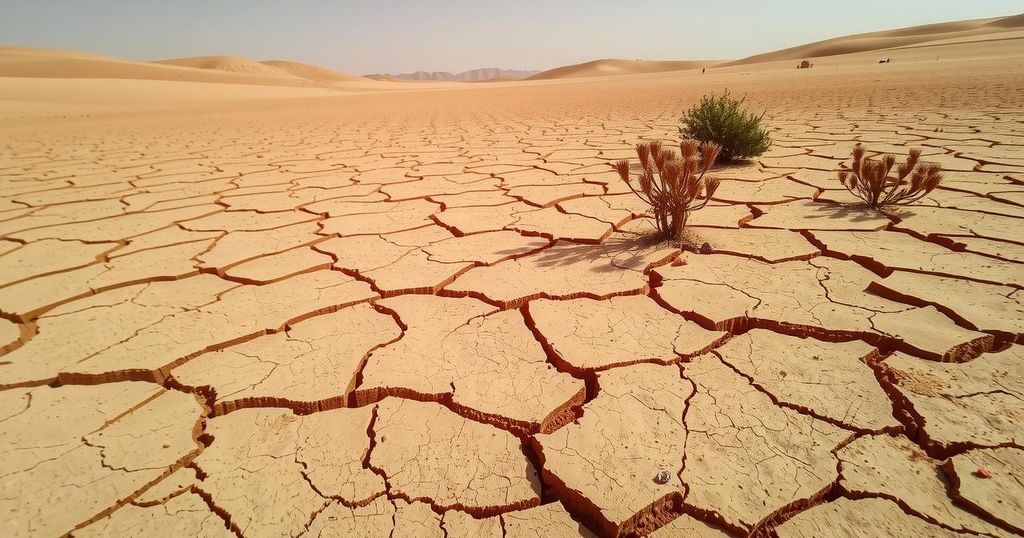Morocco recently experienced heavy rainfall, improving dam levels to 35%, but experts warn that the water crisis is ongoing, primarily affecting central and southern regions. Critics highlight the need for effective water management strategies due to Morocco’s historically drought-prone climate. Urgent calls for policy reform and responsible water usage are emphasized.
Recent heavy rainfall in Morocco, following seven years of drought, has raised dam levels from 26% to approximately 35%. Despite this improvement, levels still remain well below the 68% recorded in 2018, indicating an ongoing water crisis. Experts caution that this rainfall, which has mainly benefited northern regions less impacted by drought, should not distract from addressing the country’s chronic water management challenges.
Professor Mohammed-Said Karrouk of Hassan II University emphasizes that drought is a historical and structural issue in Morocco, not merely a recent phenomenon. He criticizes short-sighted governmental policies and highlights the success of infrastructural developments rather than effective management, stating, “We have not succeeded from a management, political, and social perspective.”
Karrouk points out that rain accumulation has mostly occurred in northern regions, while central and southern areas continue to struggle with water access. He remarked on the outdated policies that perpetuate overconsumption of water rather than sustainable management. He predicts little change in these policies, as water remains a crucial element in political stability.
Abdelhakim El Filali, an environmental expert, concurs with Karrouk, asserting that the crisis extends beyond mere rainfall. He argues, “We sometimes think with the memory of a fish,” suggesting that recent rains should not lead to complacency regarding long-term water stress. Historical patterns of alternating dry and wet climates must be integrated into future water management strategies.
El Filali highlights the problems caused by unsustainable water use, linked to an increase in agricultural exports despite the drought. He urges the implementation of effective measures, including reviewing water policies, conserving water, and addressing the deficiencies in existing infrastructure projects.
Moreover, he unveils alarming statistics, such as 91% of wells being unlicensed, violating Water Law 36.15. He concludes that Morocco must take responsibility for its water management challenges and emphasizes the need for accountability within its agricultural and water policies.
In summary, while recent rains have provided temporary relief to parts of Morocco, experts caution that the deeper water crisis remains unaddressed. Historical patterns of drought and rainfall call for sustainable management practices rather than short-term solutions. The emphasis must shift towards conserving water, enforcing policies, and evolving a holistic viewpoint regarding water resource management. Without addressing these foundational issues, Morocco’s water crisis is likely to persist.
Original Source: www.moroccoworldnews.com




